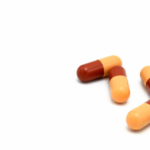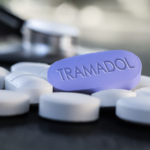
Phytosterols, commonly referred to as the “heart healthy” cholesterol are essentially plant sterols and stanol esters that are commonly found in the cell membrane of plant cells. They are very similar in structure to the cholesterol molecules in the human body and found in ample amounts in food like vegetable oils, nuts and seeds. Often used as medicines and health supplements, these plant sterols offer a host of health benefits if consumed regularly.
There are more than 250 types of plant sterols, each having its own unique composition. There are, however, three sterols that are most important in our lives:
- Beta-sitosterol: Prominent in dietary sources viz. nuts, seeds, legumes, vegetables, olive oil
- Campesterol: Found in pomegranates, grapefruits, cucumbers and lemongrass
- Stigmasterol: Available in cruciferous vegetables, seeds, unpasteurized milk, soybeans and nuts
Replacing unhealthy trans and saturated fats with healthy mono-unsaturated and poly-unsaturated fats, increasing dietary fibre intake and adding these phytosterols to the diet can help with lowering cholesterol levels. These micronutrients present achieve this by blocking the cholesterol from being absorbed into the body. [1, 2, 3]

Plethora of benefits
Additionally, phytosterols have demonstrated antioxidant, anti-tumour, anti-diabetic, anti-inflammatory and anti-atherosclerotic properties in preclinical studies and clinical trials. They are also supposed to help with the below ailments, although sufficient medical evidence is not yet available: [3, 4]
- Cancer: A lower risk of colon, rectal and gastric cancer is associated with the intake of plant sterols. Men who eat more plant sterols have a lower risk of rectal cancer.
- Metabolic syndrome: Phytosterols reduce the cholesterol levels in patients with metabolic syndrome (diabetes, high cholesterol patients)
- Heart attack: There is a 29% lower risk of suffering a heart attack if plant sterols are consumed. They also help to prevent coronary heart disease.

Modus operandi
Consuming phytosterols within prescribed limits has proven to lower total cholesterol levels up to 10% and LDL or “bad” cholesterol up to 14%. The efficacy is so high that the National Cholesterol Education Program recommends patients suffering from high cholesterol to consume two grams of phytosterols every day. According to the U.S. Food and Drug Administration (FDA), “Foods with 0.65 gram per serving of vegetable oil plant sterol esters, when eaten twice a day with meals with daily total intake of at least 1.3 grams, along with a diet low in saturated fat and cholesterol, may reduce the risk of heart disease.”
The mechanism by which phytosterols lower the LDL levels is via the reduction of 30-50% of intestinal absorption of cholesterol. Mediated by the competition of plant sterols and animal cholesterol in the intestinal lumen, the plant sterols reduce the amount of cholesterol available for absorption. Other mechanisms are the modification in the expression of genes that carry sterols, reducing the transport of cholesterol to the enterocyte, promoting efflux of cholesterol from the enterocytes to the intestinal lumen, reduced rate of cholesterol esterification in the enterocyte and increased removal of cholesterol from the body through trans-intestinal cholesterol excretion. [5]
Side effects
When consumed orally, there are almost no side effects, but it is always advisable to consult a physician before consumption. [3]
Precautions
It is always prudent to maintain precautionary measures before the intake of phytosterols in any form [3]:
- Pregnant or breast-feeding mothers: Since there is no data available to validate if plant sterols are safe to use, it is best to consult with a doctor.
- Children: Over consumption of phytosterols may lead to diarrhea or fat in the stool in young children.
- Sitosterolemia: Plant sterols may build up in the blood and tissues, making the patient prone to early heart disease.
Shubham Pharmachem – A global pioneer
Shubham Pharmachem has been a significant player in the pharmaceutical industry for almost three decades now. Our rich portfolio of products, namely Active Pharmaceutical Ingredients (API), herbal extracts, nutraceutical ingredients and cosmetic ingredients, has not only made their mark in India but in over 500 countries globally. The focused R&D highlights the prevention, treatment and alleviation of diseases. Our innovative, high-quality yet affordable medicines help improve the lives of millions of patients across the world.
For more information, visit www.shubham.co.in
Disclaimer:
Shubham Pharmachem’s blog posts have been written with the information gathered from approved medical journals and websites online. Our research and technical teams strive to provide relevant information through such articles. We strongly advise readers to not consume or administer any medication without prior consultation with their doctor.
References:
[1] Cleveland Clinic [Online]: https://my.clevelandclinic.org/health/articles/17368-phytosterols-sterols–stanols
[2] Very well Health [Online]: https://www.verywellhealth.com/can-phytosterols-lower-cholesterol-697712
[3] WebMD [Online]: https://www.webmd.com/vitamins/ai/ingredientmono-1537/plant-sterols
[4] Frontiers in Pharmacology [online]: https://www.frontiersin.org/articles/10.3389/fphar.2020.599959/full
[5] NCBI [Online]: https://www.ncbi.nlm.nih.gov/pmc/articles/PMC5729784/




